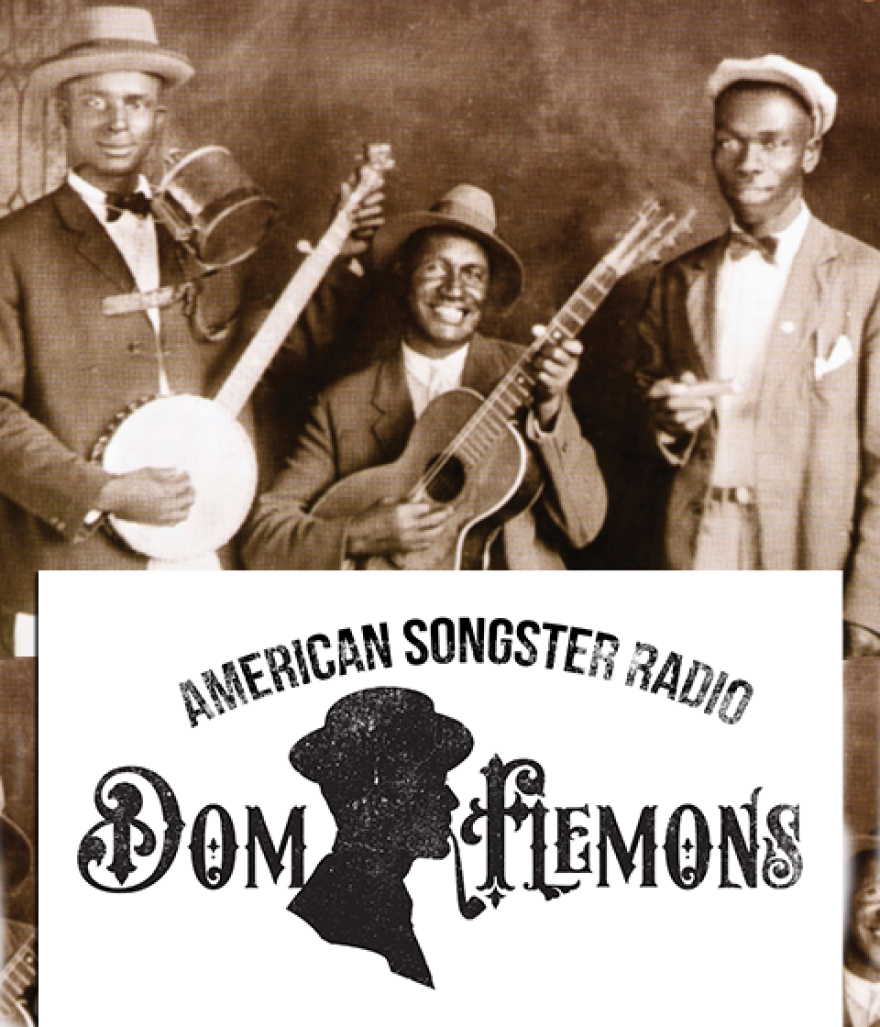When Dom Flemons first came across the story of African American songster Gus Cannon, one fact took him by surprise. "[Gus Cannon] was a blackface performer, but he was a black man," Flemons says, recalling his initial reaction. "How can this be? That you can have an African American man be a part of a type of entertainment that, when I’d read about it in books, they would say that it was demeaning to black people?"
Dom pursued this question in his own historical research and eventually published an article on Cannon for Oxford American magazine ("Can You Blame Gus Cannon?" published in the fall of 2013). His account of Cannon’s life reveals a performer who manages to subvert stereotypes, even while working within the limitations set by a dominant culture.
When Flemons plays songs from Cannon’s repertoire in concert, he often begins with a version of Cannon’s life story. "[Blackface minstrelsy] was the very first international phenomenon for American popular entertainment," Flemons explained to a Las Vegas audience in January 2017. "After the civil war, as African Americans began to be emancipated, the ones that wanted to get into the entertainment business, they just jumped in and did the same thing the white guys did, and they put on blackface as well. And Gus Cannon was one of those guys that was in the business."
Hear Dom tell the rest of this story, and perform the Gus Cannon swagger song "My Money Never Runs Out," in today’s bonus episode of American Songster Radio.
For an extended interview with Flemons on his Gus Cannon research, check out Flemons’ appearance on Soundcheck, from WNYC.
How did you like the first season of American Songster Radio? Help us spread the word by rating and reviewing the show on iTunes!











